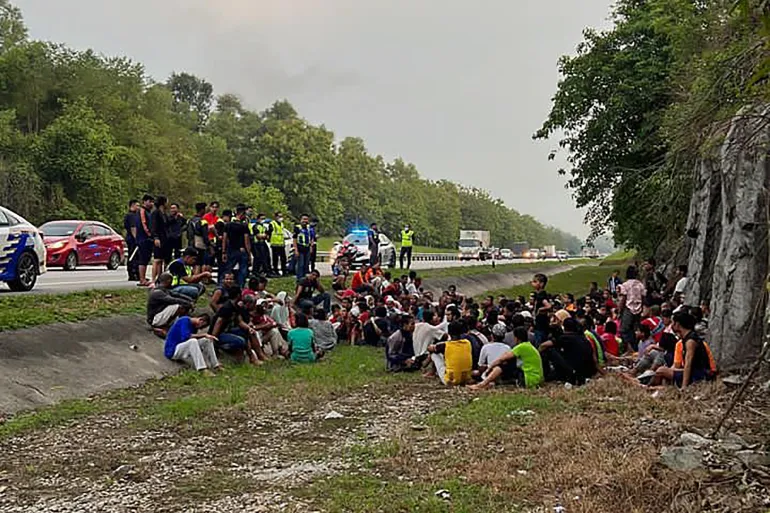Together with the Malaysia-based North South Initiative (NSI) and Myanmar Ethnics Organization (MEO), the GDP has urged the UN Committee on the Rights of the Child to demand that Malaysia immediately stop detaining child refugees, asylum seekers, and migrants for migration-related reasons. […]
Malaysia
Persistent Reports of Severe Human Rights Violations in Malaysia’s Immigration Detention Centres
Malaysia has been repeatedly criticised for having one of the world’s most abusive and punitive immigration detention systems. Yet the government continues to fail to address the international community’s recommendations to protect vulnerable migrants and refugees in the country, as the UN Committee on the Elimination of Discrimination against Women (CEDAW) recently reported in a […]

Mass Escape from Malaysian Detention Centre Highlights Need for Reforms
On 1 February, 131 (mainly Rohingya) refugees escaped from an immigration detention centre in the Malaysian state of Perak following reported riots in the facility, called the Bidor Temporary Immigration Depot. This is the second mass escape in two years from a Malaysian detention centre, which observers say underscores the inhumane conditions that immigration detainees […]

Malaysia: Joint Submission to the Universal Periodic Review
Malaysia’s immigration enforcement regime—including detention, forced removals, criminal prosecution, and corporal punishment—is one of the world’s more punitive, arbitrary, and harmful systems. In a submission to the UPR, the GDP and APRRN highlight areas of particular concern. […]

Malaysia: Covid-19 and Detention
On 20 April 2022, 528 Rohingya refugees–including 97 women, 294 men, and 137 children–escaped from the Relau detention centre in Sungai Bakap. According to a new local news agency, immediately before the escape there had been a “riot” at the detention centre. Most of the detainees were quickly re-detained, though seven–including three children–died while trying […]

Kidnapped, Trafficked, Detained? The Implications of Non-state Actor Involvement in Immigration Detention
This article critically assesses a range of new non-state actors who have become involved in the deprivation of liberty of migrants and asylum seekers, describes the various forces that appear to be driving their engagement, and makes a series of recommendations concerning the role of non-state actors and detention in global efforts to manage international migration. […]

Malaysia: Covid-19 and Detention
Since the onset of the pandemic, Malaysian authorities have argued that crack-downs on undocumented migrants and other non-nationals are necessary to stop the spread of COVID-19. A recent example is the 24 May-28 June 2021 nationwide lockdown–referred to in Malaysia as a Movement Control Order (MCO)–during which Home Ministry officials have carried out wide-scale raids […]

Malaysia: Covid-19 and Detention
In the face of mounting international outrage, on 23 February Malaysian authorities proceeded with the deportation of 1,086 people to Myanmar, who included suspected refugees as well as many children (see the 18 February update below for additional details). The deportations took place as the COVID-19 pandemic has severely hurt the job prospects of migrants […]

Malaysia: Covid-19 and Detention
Despite strong criticism from civil society organisations and the UN, Malaysian authorities are preparing to deport 1,200 people to Myanmar on 23 February even as the crisis in Myanmar spurred by the recent military coup there continues to deepen. Observers are particularly concerned that refugees and asylum seekers will be amongst those deported by Malaysia. […]

Malaysia Immigration Detention Data Profile (2020)
Malaysia Detention Data (2020) The latest detention-related data from Malaysia, including immigration and detention-related statistics, domestic laws and policies, international law, and institutional indicators. View the Malaysia Detention Data Profile Related Reading: Malaysia: Country Page Submission to the Universal Periodic Review (31st Session, November 2018): Malaysia Staff Publication: Kidnapped, Trafficked, Detained? The Implications of Non-State […]




